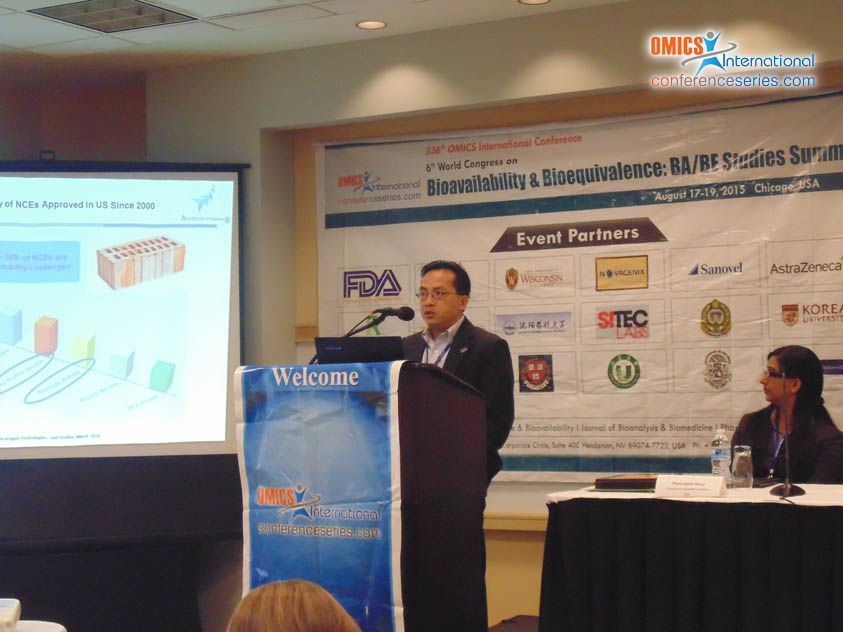
Jim Jingjun Huang
Ascendia Pharmaceuticals, USA
Title: Rational design of amorphous solid dispersion for solubility and bioavailability enhancement
Biography
Biography: Jim Jingjun Huang
Abstract
As a result of research efforts, solid dispersion dosage forms have been applied to several commercial pharmaceutical products. It is expected that with better understanding of SD manufacturing process and molecular structure associated with its in vitro/in vivo performance, there will be more SD dosage forms introduced into the market in the future. The aim of this presentation is to evaluate effects of formulation and process technology on molecular dispersibility in solid dispersions (SD). Solid dispersions prepared by different methods were characterized. A method was developed based on regular solution and Flory-Huggins theories to calculate drug-polymer interaction parameter in solid dispersion systems. A synergic effect of combined polymers on drug molecular dispersibility in solid dispersions was observed. Process methodology was also found to play an important role in formation of amorphous SD. Since drug molecular dispersibility in combined polymer is a result of interplay between thermodynamic and kinetic factors, drug molecular dispersions are thermodynamically metastable systems. To explore those supersaturation systems for use in drug delivery of poorly water soluble drugs, it is critical to balance drug-polymer interactions and matrix glass transition point and to consider a process technology with a fast solidification rate during formulation and process development of amorphous SD.

